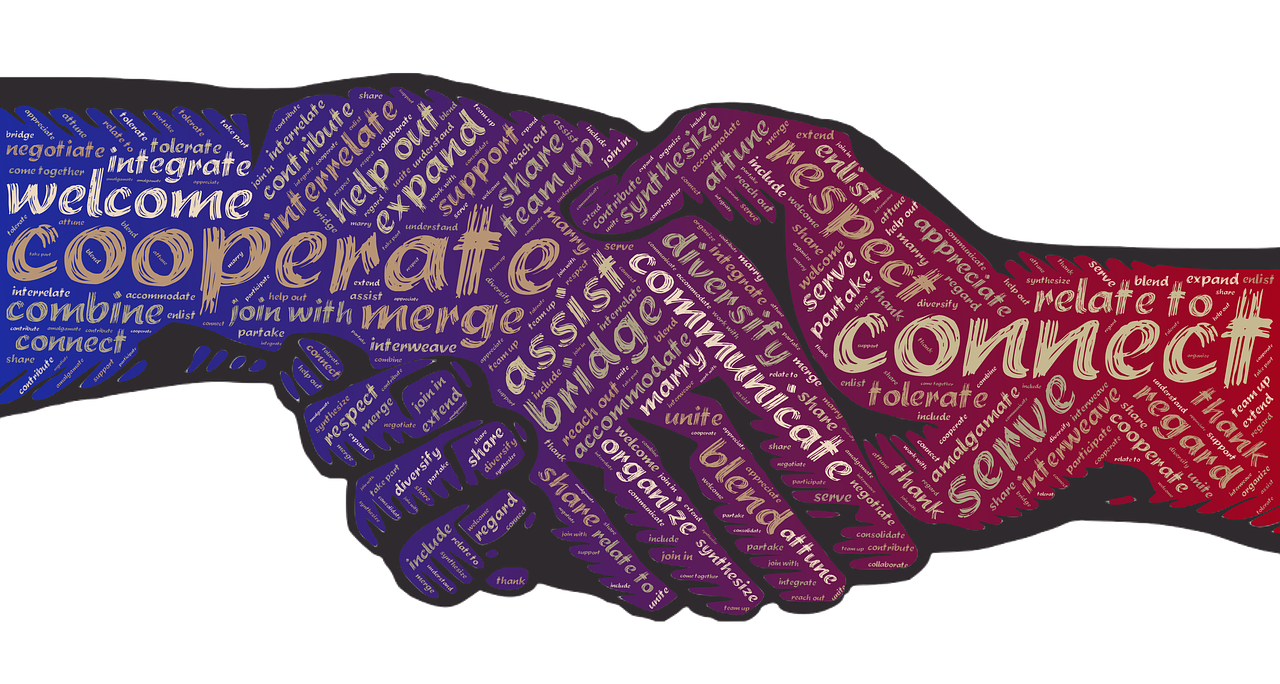
When it comes to discussing sensitive topics with your partner, it’s only natural for defensiveness to rear its head. But how can you address this challenge in a way that promotes open communication and understanding? In this article, we’ll explore some strategies that can help you navigate these difficult conversations with your loved one, fostering a deeper connection and mutual growth in the process. So, if you’re ready to tackle those tough subjects with grace and empathy, read on to discover how you can address your partner’s defensiveness effectively.
Get Your Romance Back On Check Click Here To Learn More!
Understanding Defensiveness
Defining defensiveness
Defensiveness is a common reaction that occurs when a person feels attacked, criticized, or misunderstood in a conversation. It often involves becoming guarded, avoiding accountability, and shifting blame onto others. Defensiveness can manifest as counter-arguments, denial, or emotional withdrawal.
Why defensiveness occurs
Defensiveness is a natural response rooted in self-preservation. When faced with a perceived threat to our self-image or ego, we instinctively try to protect ourselves. It may stem from past experiences of being hurt or criticized, which can make us more sensitive and defensive in future interactions. Fear of conflict, rejection, or negative consequences can also trigger defensiveness.
Recognizing signs of defensiveness
Identifying signs of defensiveness in oneself or in a partner is essential for effective communication. Some common indicators include interrupting or talking over the other person, making excuses or justifications, becoming overly emotional or irritable, avoiding eye contact, and physically withdrawing from the conversation. It’s important to pay attention to these signs and address them in a constructive way to foster open dialogue.
Importance of Addressing Defensiveness
Creating a safe space for communication
Addressing defensiveness is crucial for creating a safe and supportive environment where both partners feel comfortable expressing their thoughts and emotions. When defensiveness is left unaddressed, it can create a cycle of tension, resentment, and misunderstandings, making it difficult to effectively resolve conflicts and build intimacy.
Building trust in the relationship
Openly addressing defensiveness helps build trust in the relationship. When both partners feel heard and understood without fear of judgment or criticism, they are more likely to be vulnerable and share their true feelings. Trust is the foundation of healthy communication, and by addressing defensiveness, partners can strengthen their bond and work towards a more fulfilling and harmonious relationship.

Get Your Romance Back On Check Click Here To Learn More!
Approaches to Addressing Defensiveness
Choose an appropriate time and place
Selecting the right time and place to address defensiveness is essential. Pick a calm and neutral environment where there are minimal distractions. Avoid discussing sensitive topics when either partner is tired, stressed, or preoccupied with other tasks. By setting the stage for open and focused communication, both partners can feel more comfortable expressing themselves without unnecessary defensiveness.
Use ‘I’ statements
When addressing defensiveness, it is important to use “I” statements instead of “you” statements. By framing thoughts and concerns in terms of personal experiences or feelings, rather than directing blame or criticism at your partner, it reduces the chances of triggering defensiveness. For example, saying “I feel unheard when I am interrupted” rather than “You always interrupt me” allows for a more constructive conversation.
Practice active listening
Active listening is a powerful tool to address defensiveness. It involves fully engaging in the conversation without interruptions or distractions, focusing on understanding the speaker’s perspective, and reflecting back what you have heard. By demonstrating genuine interest and empathy, you create a supportive atmosphere that encourages your partner to feel validated and understood, reducing defensiveness.
Express empathy and understanding
Expressing empathy and understanding is a vital component of addressing defensiveness. Make an effort to acknowledge your partner’s feelings and validate their experiences, even if you may not agree. Show compassion and empathy by using phrases like “I can understand how that made you feel” or “I see why you would be upset about that.” This creates a connection, reduces tensions, and promotes open dialogue.
Validate your partner’s perspective
Validation is crucial when addressing defensiveness. It involves actively recognizing and affirming the validity of your partner’s thoughts, emotions, and experiences. By genuinely acknowledging their perspective, even if it differs from your own, you demonstrate respect and validation. This helps your partner feel heard and less defensive, leading to more productive communication.
Effectively Framing Sensitive Topics
Choose non-accusatory language
When discussing sensitive topics, it is important to choose non-accusatory language. Avoid placing blame or using derogatory language that can trigger defensiveness. Instead, focus on expressing your own feelings, thoughts, and concerns without attacking your partner’s character. By emphasizing your own perspective and using neutral language, you can foster a more productive and non-defensive conversation.
Focus on specific behaviors or situations
To address defensiveness effectively, it is essential to focus on specific behaviors or situations rather than making generalizations or assumptions. By pinpointing specific incidents and how they made you feel, you can provide concrete examples that allow for a more focused and constructive discussion. This helps avoid misunderstandings and reduces the likelihood of defensiveness.
Avoid generalizations
Generalizations can be detrimental to productive communication. When discussing sensitive topics, it is important to avoid using sweeping statements such as “you always” or “you never.” These generalizations tend to escalate defensiveness as they imply a permanent, negative characteristic. Instead, focus on sharing specific instances and how they impact your feelings and experiences.
Ask open-ended questions
Open-ended questions encourage your partner to express their thoughts, feelings, and perspectives more fully. By asking questions that cannot be answered with a simple “yes” or “no,” you invite deeper reflection and open the door for meaningful dialogue. This approach helps address defensiveness by fostering a more collaborative and exploratory conversation.
Keep emotions in check
When communicating about sensitive topics, it is crucial to keep emotions in check. While it is natural to feel passionate or frustrated, allowing emotions to escalate can lead to defensiveness and hinder effective communication. Take deep breaths, stay calm, and remind yourself of the goal of the conversation – to address defensiveness and foster understanding. Acting and speaking from a place of emotional stability helps defuse defensiveness and promote more productive interactions.

Developing Communication Skills
Increase self-awareness
Developing effective communication skills starts with increasing self-awareness. Take time to reflect on your own communication patterns, triggers, and biases. Understand your own emotional responses and how they may influence your partner’s defensiveness. By becoming more self-aware, you can better address defensiveness and approach conversations with empathy and openness.
Improve emotional intelligence
Emotional intelligence plays a vital role in addressing defensiveness. It involves understanding and managing your own emotions while also recognizing and empathizing with your partner’s emotions. By improving your emotional intelligence, you can navigate sensitive conversations with greater sensitivity and maturity, leading to more productive and less defensive communication.
Manage conflict constructively
Conflict is a natural part of any relationship, but it is important to handle it constructively. When conflicts arise, use communication techniques such as active listening, expressing empathy, and finding common ground. Avoid resorting to personal attacks or resorting to defensiveness yourself. By managing conflicts in a positive and productive manner, you can address defensiveness effectively and strengthen the overall communication within your relationship.
Identifying Personal Triggers and Patterns
Self-reflection and analysis
Identifying personal triggers and patterns requires self-reflection and analysis. Take time to reflect on past experiences, relationships, and interactions to identify recurring themes or situations that trigger defensiveness. By examining your own behavior and emotional reactions, you can gain insights into the causes of defensiveness and work towards addressing them.
Understanding personal biases and assumptions
We all have personal biases and assumptions that can impact communication. It is important to understand these biases and reflect on how they may contribute to defensiveness. Consider your beliefs, values, and cultural upbringing that may influence your reactions. By acknowledging and challenging these biases, you can foster more open and non-defensive communication.

Seeking Professional Help
When to consider couples therapy
In some cases, addressing defensiveness may require professional help. Couples therapy can be beneficial when defensiveness becomes a persistent and detrimental pattern within the relationship. If attempts to address defensiveness on your own have been unsuccessful or if it is causing significant distress, seeking the guidance of a trained therapist can provide valuable insights and strategies.
Benefits of counseling
Couples therapy offers several benefits when addressing defensiveness and improving communication. A trained therapist can offer an unbiased perspective, create a safe space for open dialogue, and provide effective strategies tailored to your specific needs. Counseling can also help uncover underlying issues, facilitate deeper understanding, and strengthen the overall relationship.
Finding the right therapist
Finding the right therapist is crucial for successful couples therapy. Consider seeking recommendations from trusted sources, researching therapists’ areas of expertise, and scheduling initial consultations to assess compatibility. A skilled and experienced therapist can guide you and your partner through the process of addressing defensiveness and developing healthier communication habits.
Addressing Defensiveness in Real-Life Scenarios
Financial issues
Addressing defensiveness in the context of financial issues requires open and honest communication. Create a safe space where both partners can express their concerns and goals. Focus on finding common ground, setting shared financial objectives, and exploring compromises. By approaching financial discussions with empathy and understanding, defensiveness can be minimized, and constructive solutions can be found.
Intimacy and sexual concerns
Intimacy and sexual concerns can be sensitive topics that often trigger defensiveness. Approach these conversations with utmost respect and empathy. Encourage open and non-judgmental dialogue, allowing both partners to express their needs, desires, and concerns. By actively listening, validating each other’s perspectives, and seeking professional help if needed, intimate and sexual issues can be addressed in a healthier and more fulfilling way.
Parenting disagreements
Parenting disagreements often lead to defensiveness as both partners have strong opinions about what is best for their children. It is essential to approach these conversations with a willingness to compromise and work together as a team. Create a safe space to openly share concerns and perspectives, valuing each other’s contributions. Focus on finding common ground and exploring parenting strategies that prioritize the well-being of the children.
Political or religious differences
Political or religious differences can be highly divisive and easily trigger defensiveness. It is important to approach these conversations with the aim of understanding, rather than changing, your partner’s beliefs. Seek common values and emphasize respectful dialogue that encourages learning and growth. Agree to disagree on certain topics, and focus on maintaining harmony and respect amidst differences.
Past traumas or unresolved conflicts
Past traumas or unresolved conflicts can contribute to defensiveness within a relationship. Addressing these sensitive topics requires utmost sensitivity and patience. Create a safe and supportive environment where both partners can honestly express their emotions. Consider seeking professional help to facilitate healing and guide the conversation towards resolution and understanding.

Maintaining Patience and Persistence
Accepting that change takes time
Addressing defensiveness requires patience and understanding that change takes time. It is important to acknowledge that longstanding communication patterns cannot be transformed overnight. Celebrate small victories along the way and remain committed to fostering a healthier and more open communication style. Realize that progress is a continuous journey and be patient with yourself and your partner.
Continuously working on communication
Effective communication is an ongoing process that requires continuous effort and practice. Regularly prioritize open and non-defensive dialogue with your partner. Share your thoughts and listen actively, validate each other’s perspectives, and remain open to growth and learning. By continuously working on communication, you can address defensiveness and strengthen your relationship.
Celebrating small victories
Celebrate and acknowledge the small victories achieved in addressing defensiveness. Recognize and appreciate the positive changes in your communication style. By celebrating the progress made, you and your partner can remain motivated and optimistic. Remember that every step towards healthier communication contributes to a more fulfilling and harmonious relationship.
Conclusion
The importance of open and non-defensive communication cannot be overstated in a relationship. By understanding defensiveness, addressing it effectively, and developing strong communication skills, partners can create a safe space for open dialogue, foster trust, and strengthen their connection. Whether addressing sensitive topics, identifying personal triggers, or seeking professional help, the journey towards healthier communication requires patience, persistence, and a genuine commitment to working together for a healthier relationship.




